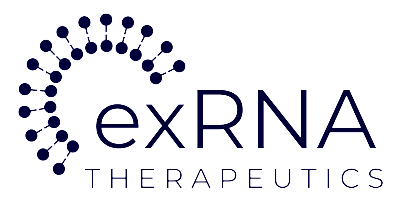
Research and Development
Our drug, G1, is currently in the preclinical phase of the drug approval process, meticulously undergoing the necessary steps for Phase 1 clinical trial approval. This rigorous progression aligns with our commitment to achieving the highest standards of safety, efficacy, and ethical compliance in advancing this innovative therapy.

Neurology
The exRNA Therapeutics Department of Neurology is at the forefront of groundbreaking research and treatment of neurological disorders. Our focus is on uncovering the genetic underpinnings of these conditions and pioneering advanced therapies to combat them. One of our most exciting innovations is Antisense Oligonucleotide (ASO) therapy, a cutting-edge approach that targets genetic disorders at the RNA level. This therapy utilizes synthetic nucleic acid strands designed to precisely bind to specific RNA molecules, thereby modifying their function and regulating gene expression. By harnessing the power of ASO therapy, we aim to transform the landscape of neurological treatment and offer hope to patients worldwide.

Cardiology
exRNA Therapeutics, department of cardiology is currently working on autoimmune conditions of cardiovascular diseases by targeting the genes that have undergone mutation and also upregulating the genes that needs to be upregulated by ASO therapeutics technology. Antisense oligonucleotide (ASO) therapy represents an innovative approach in the management of cardiovascular diseases (CVD). ASOs are synthetic single-stranded DNA molecules designed to selectively target and inhibit the expression of specific genes involved in disease pathways. In CVD, ASO therapy holds promise in targeting genes associated with lipid metabolism, inflammation, and thrombosis, among others. For instance, ASOs targeting proprotein convertase subtilisin/kexin type 9 (PCSK9) have shown efficacy in reducing LDL cholesterol levels, thereby lowering the risk of atherosclerotic cardiovascular events. Similarly, ASOs targeting genes involved in inflammation pathways, such as interleukin-6 (IL-6) or tumor necrosis factor-alpha (TNF-alpha), may offer potential benefits in managing inflammatory conditions contributing to CVD progression. While ASO therapy represents a promising avenue, ongoing research is needed to further elucidate its safety, efficacy, and long-term outcomes in diverse cardiovascular conditions.

Autoimmune Disorders
Autoimmune disorders arise when the immune system mistakenly attacks healthy cells and tissues. Psoriasis, a chronic skin condition, results from immune dysfunction targeting skin cells. Other autoimmune diseases like rheumatoid arthritis and lupus affect various organs. Treatment often involves immunosuppressants to manage symptoms and reduce inflammation. Immunosuppressive therapies can lead to long-term side effects such as increased susceptibility to infections and potential organ damage. We are working on the development of antisense oligonucleotide therapy for such conditions.

Rare Disorders
exRNA Therapeutics recognizes the urgency in addressing rare diseases. Globally, over 7,000 rare diseases affect millions, with India alone harboring around 70 million sufferers. Often overlooked, these diseases demand attention due to limited treatment options and delayed diagnoses. Our mission is to bridge this gap by leveraging cutting-edge research and innovation to develop targeted therapies. With the advent of genomics, there's unprecedented potential to revolutionize rare disease treatment. By collaborating with experts and stakeholders, we're committed to driving forward the development of life-changing cures, offering hope to patients worldwide.
AntiSense Oligonucleotide therapy is a promising approach for rare disorders as it alters RNA processing, potentially restoring protein function. G1 is in preclinical stage, it holds potential for halting disease progression and improving disease symptoms of Autism Spectrum Disorder.
